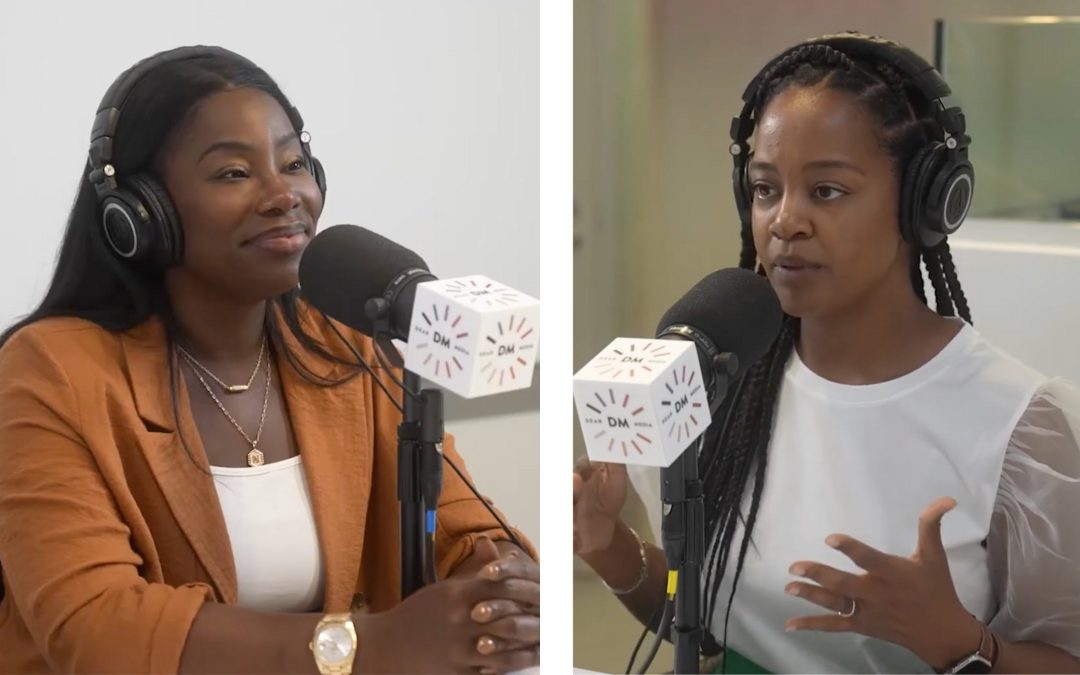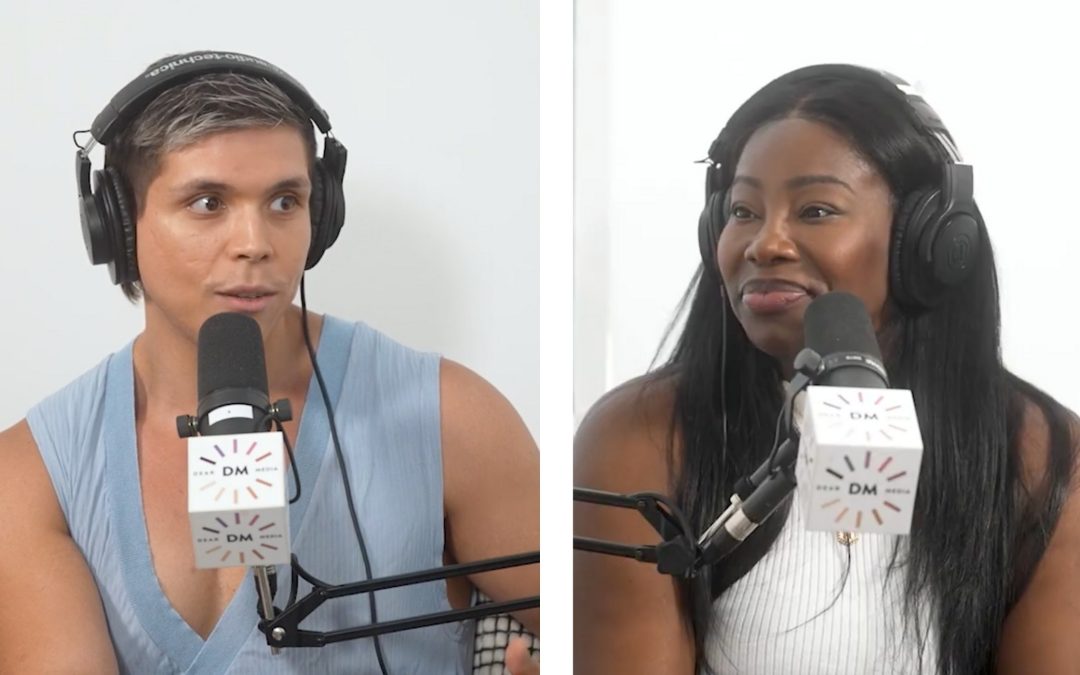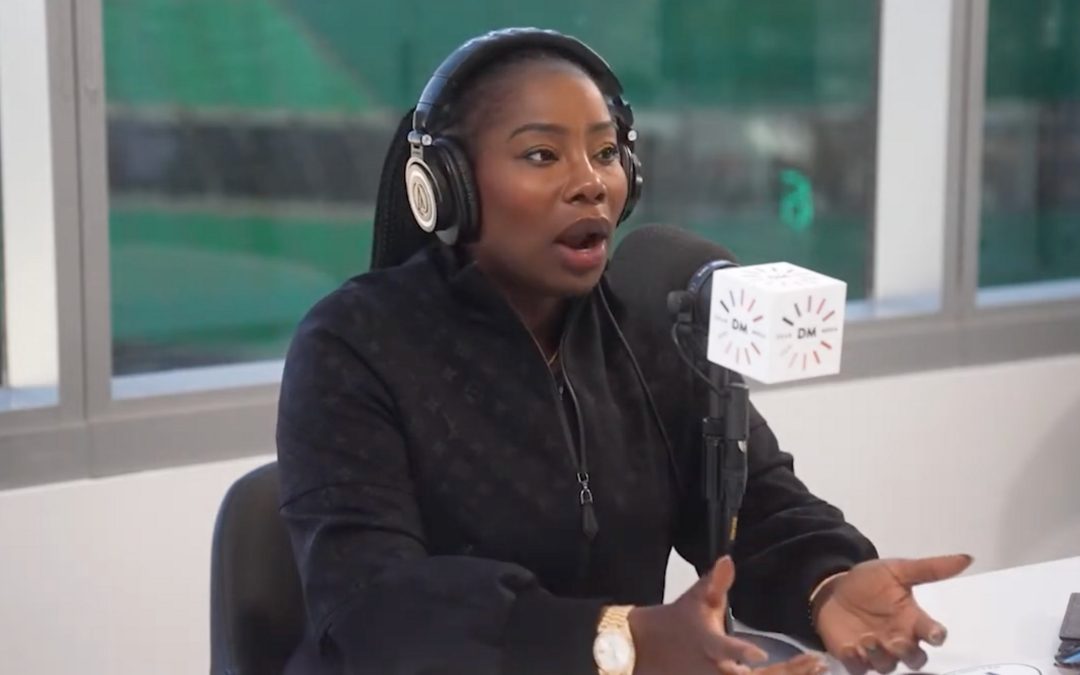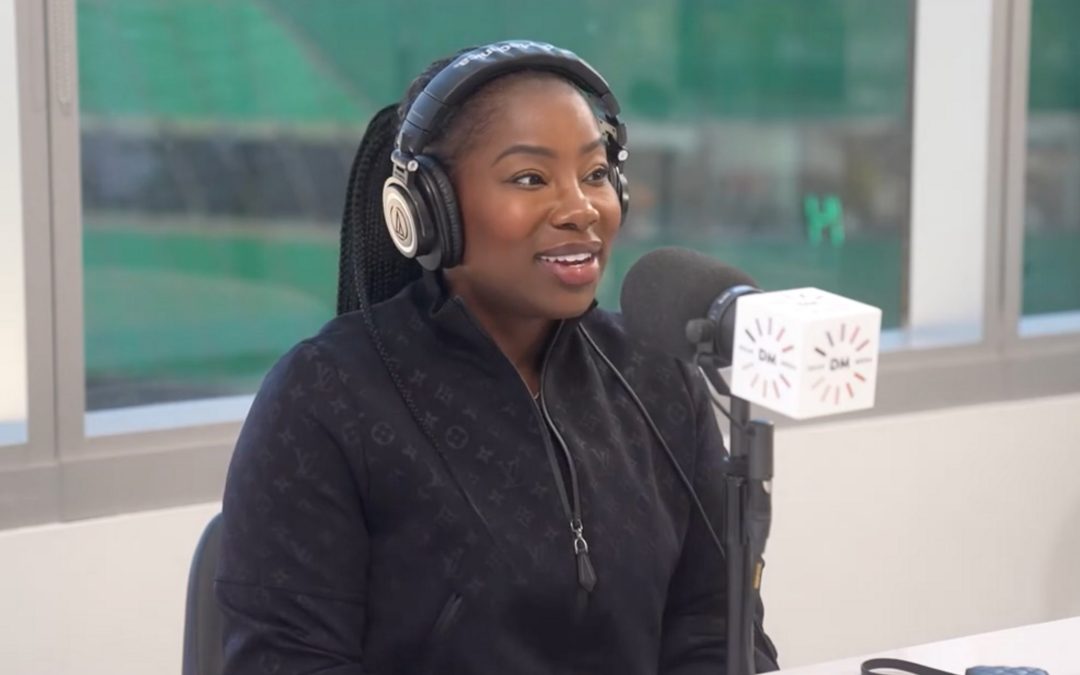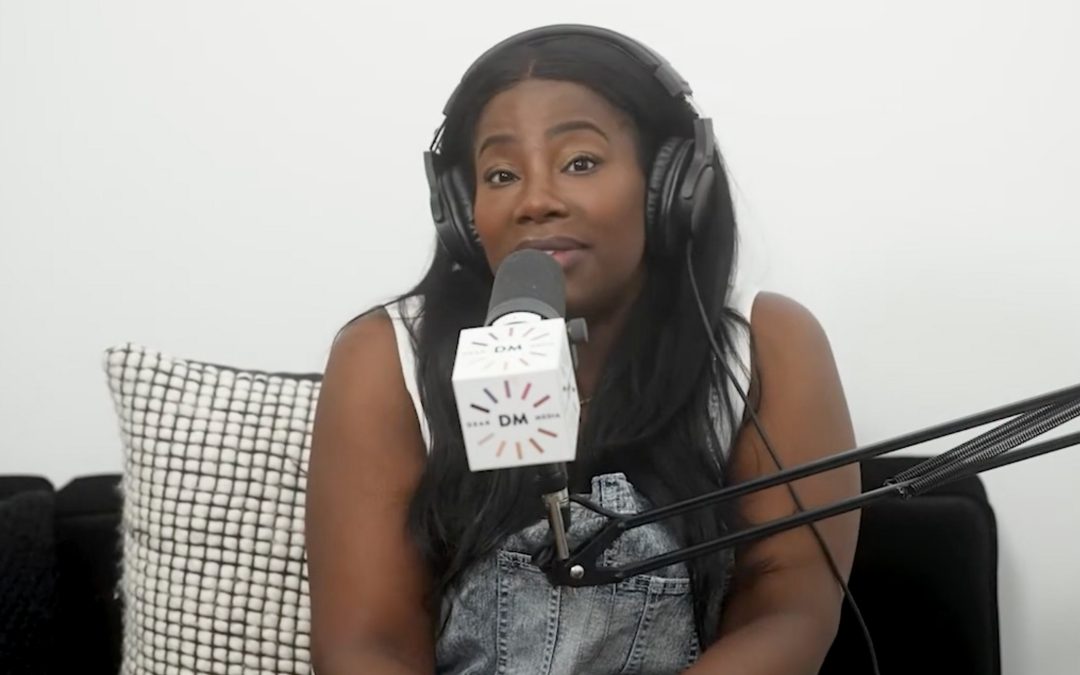
Failing My Kids
Failing My Kids
This season has been about starting over. We’ve chatted about many of the transitions I’m in and as I continue to learn, I’ll continue to share with you here.
In this chat I’m sharing how divorcing feels from a mom perspective. It’s been 9 years since my kids entered my life and from day one I’ve promised them I wasn’t going anywhere. That is still true today and is one of the few constants we have.
Friend, thank you so much for the grace you’ve given me as I share my stories and lessons with you. I am so appreciative of the conversations we’ve had here and in my DMs. Let’s keep this a 2-way conversation!
Thanks for being here for this chat. Let’s continue chatting over on Instagram @nicolewalters !
Nicole:
Hey, friends, I am so excited that we’re back for our weekly chats. And thank you for coming back week over week, it’s just been so amazing to talk to you in the DMs on social media, and just kind of share my life. I mean, it has been crazy. And you guys are all so encouraging, and you’ve shared so much with me. So I’m really appreciative. And if you’re just tuning in for the first time, and we are meeting for the first time, it’s been a doozy. I mean, this past year has been more than I ever could have imagined, so much has happened.
And if you go back to Episode One, you would hear that I am in a very transitional phase of my life. One that isn’t unique to me, which is what makes these conversations so special. Because both sadly, and in a good way for many, you’ve gone through a lot of what I’m going through now, but you know, I am divorced, divorcing, in the process of and I am, you know, a single mom, you know, for the first time ever, you know, to three adopted babies. And I am just out in the world rebuilding.
So this season, everything that we’ve been chatting about and sort of these blocks of weekly chats has been all about starting over. And that’s kind of how we kicked it off. And it’s how we’re going to keep it going. We’ve had the opportunity to hear from some of my new good friends, you know about what it’s like to start over in their respective careers and places in life. And I’ve also shared some of my own story in between all of that, where I’m starting over as in some aspects of my business, the way that I’ve started over with my health, the way that I am starting over in relationships and the way I’ve started over, you know, as a non-married.
So, I’ve been sharing that story. And I’m appreciative because I’ve gotten so much great support, because it is trying and it is difficult. And it’s not easy to be candid and vulnerable and transparent about how difficult it is. And I do have days where it’s very scary, but I feel the love. And I appreciate all of you. So today, in kind of continuing that theme and letting you guys know that I’m going to be diving in a little more, because with each chat, I get a little bit more comfortable. And as things evolve, I have a little bit more to share, as I’m learning. I’m gonna be sharing more about it.
So this week, we are going to be talking about how this all feels from a mom perspective. And this is something that I’ve been having a lot of conversations about in the DMs. So for those of you who are Mamas out there, who either are single moms, which shout out to all the single moms out there, when I tell you the very first moment that I realized that this was not going to be easy go of it was when I had a sick little at home. And I realized that I didn’t have someone I could send to the pharmacy, and I couldn’t leave my baby at home. So it was a situation of packing up my baby, putting my baby in the car, sick, going to the store, pulling my baby out of this car to get the meds, you know, because like I had to get everything I need and then make it back home. And it was when I realized that, oh, wow, this is gonna be a little bit different. You know, doing things solo is not easy. And so just shout out to the single moms and you know, the single dads are out there also, you know, doing it on their own. It’s not easy, and especially while trying to balance work and, if possible, a social life, right. You know, and personal care and self care. It’s like and drink your water, you know what I mean? And eat your vegetables. It’s a lot.
But that’s what I wanted to talk about is, firstly, for those of you who have reached out to me and said, You’re still in a situation where it’s a difficult relationship or a difficult marriage, or you can send some challenges may be coming or that even something that isn’t as extreme but just a relationship may have reached his expiry, it’s gotten to the point where you know that it may not make sense to go further. Or if you’re like me, you didn’t have a choice, you know, where you felt like, you’re in a position where you have to go, and you don’t have a choice, and you have to go because you do. It’s unexpected, but that’s where you are. And so I wanted to speak a little bit about some of the parenting aspects of that and what that feels like, and it’s not gonna be easy, but I know that you guys are going to grant me grace as I try to share what I’ve learned, so that you are able to hopefully grow.
So when I first encountered that I would need to transition out of my marriage. I was not prepared for that. I don’t know I’m gonna be completely honest, because I only know my version of it. But I don’t know how many moms or women really do expect it to happen. I mean I think for most people, whether you uncover something unexpectedly that makes you have to walk out of the door, or you are, have dealt with years and years of something happening, and then you leave, or you’re told you need to go, I mean, whatever it is, I don’t think that many of us get married with the intent to fail. I don’t think if you don’t want to call it a failure, but an intent to not continue. And so that means it almost always is a little unexpected, right? And if you have children, and it’s something that you think about, and you wonder, can I do this, it’s an extra complexity, I don’t want to say that it’s any easier or harder, because I don’t like getting into the hardship Olympics, right? Like, oh, my pain is worse than yours or my circumstances tougher than yours, it’s hard for everyone, right? We all can handle what we can bear. But what I can tell you is that when you have kids, it is an extra layer, because you’ve got feelings and obligations and financial responsibilities, and, frankly, routines and structure and so many things that are hard enough to manage while you’re there, let alone if you have to leave or move or transition or ask your partner to leave or what have you. So I want to let you know that for me, at least I can speak to it. I’m fortunate that my kids are older. You know, having an 11 year old, a 20 year old and a 23 year old means that I’ve got kids that frankly have their own lives in a lot of ways, have their own structure, have their own well being and a lot of things going on, and they’re easier to communicate with. So we’ve always kept a very open household. You know, one of our rules in our home was kind of if you’re old enough to ask the question, you’re old enough to get the answer, an age appropriate answer, but you know an answer.
And because our girls are adopted, you know, from a traumatic situation, it was always really important that truth was at the forefront of any interaction we have with them, because trust is so so important to them, for their well being. So, as a mom, you know, one thing that I think I’ve always been really good about was just being very forthright with my kids. Now, it’s a lot easier to be forthright with your kids when you know what you’re doing. And you know what’s happening.
When I first separated, close, you know, going on two years ago, the perspective that I had was that it was just simply some time apart, right? It was just hey, we’re going through some stuff, and we just needed to sort it out. And obviously, I would go back. So I just needed, you know, a temporary, you know, situation, that’s what it was, and I just couldn’t invest in my new life. And, and that was fine, because, you know, I still had a life and I still had a partner and I still had, you know, things to go back to. And if anything, I can use this time to recuperate, because I you know, as I mentioned in episode one, I was dealing with some health concerns, but that I also could use this time to, you know, maybe get back to work and kind of figure out some new things. And that was kind of the perspective that I had. And that also lent itself to me not wanting to put down roots.
So I didn’t get a place, you know, I didn’t get anything permanent, I wouldn’t even buy appliances, you know, I found myself outside of my home with three suitcases, you know, I just really didn’t believe anything would be long term. And so as a mom, you know, it just was about, you know, making sure that I use that time briefly and just let the kids know, I’ll be back, you know, and I was back, you know, regularly.
Fortunately, with my partner, we have a really great relationship when it comes to our children where that has never been an issue in terms of either one of us being able to interact with our kids because we do just love them tremendously. And also, they’re older and they can speak for themselves in many respects. So however even one of us wants to interact with our kids, whatever level we’ve always had access to being able to do that. So it’s a real blessing. But I know that I definitely immediately the first thing that hit me was deep, deep mom guilt. And I’ve always been inclined towards mom guilt. It’s even tough to talk about here.
I’m going to be completely honest because I don’t really talk about that so much because there isn’t. I’ve talked about this a little bit on Instagram where I’ve said that I don’t really worry about judgment too much. And a lot of places because I know people will judge whatever you do, people will judge the fact that I like my grits savory and not sweet, okay, the internet is crazy. People will literally judge everything about you. Your favorite thing about your body is someone’s least favorite thing about your body, and people will judge how you got there. And there’s nothing you can do about that. So I’ve tried not to get too caught up in judgment, partly because I live a life out loud. And I don’t want to be paralyzed in fear about sharing the things that God has delivered me from that could also deliver someone else from their suffering. I mean, isn’t that what we’re called to do?
So I try not to get caught up in judgment. But when I tell you, I am so deeply in love with my sweet babies, like they are the greatest blessing that I’ve ever received in my world. And being a mom has transformed me in a way that I can’t even find words that quantify. And beyond that, when I think of the love that I have for my children, and the level of sacrifice and the fact that we have chosen each other, there’s nothing else that I know that I am, without a doubt, without question here to do, but be their mother. And I feel it feels like a privilege, like an honor. I mean, you guys have watched the girls grown up. A lot of you have, if you haven’t, you can follow over on Instagram at Nicole Walters, you can see my babies there. You know, you’ve seen them grow up, when I tell you, I know that you all have a sense of how awesome the girls are. And if you watch the TV show, you have a sense of it. I’m telling you, it’s that times 10.
These girls are incredible. Like I cannot speak more about how wonderful they are, it is truly an honor to be their mother. And I worry often about how good at it I am. I had a really tough upbringing. My parents, I know, did the best they could with the tools they had. But it doesn’t mean that it was always enough. And I talked about that more in my book. Because you know, there’s certain forums for certain things. But I didn’t always have the best examples for parenting. So I’ve invested a lot because I know that it’s important both in therapy and reading and research. And then I also do what I like to call interactive parenting, where I ask my kids for feedback all the time, kind of like clients, right, like, so give me a survey, how do you think I’m doing on a scale of one to 10? You know, or is there someplace that you think I can improve? Or tell me more about that. And if you listen back to some of our episodes, I’ve actually had my little one and my MidTiny, both on previous episodes. So you can definitely listen to kind of their very candid feedback about my parenting but knowing that I helped these girls, you know, we helped each other honestly escape a life of trauma, you know, having their previous mother be someone who has addiction, and, you know, dealing with things on the street that they never should have encountered, and having lots of struggles.
I can’t tell you the immense guilt that I’m not going to lie to you, I still feel, I feel it right now, about bringing a trauma in their life, if you will. And I know some of you right now who, oh, my gosh, I can literally feel my belly flipping. You guys understand what I’m saying? Right? If you are a mom yourself who has gone through or been through divorce, or a big breakup, or you’ve had a partner in your kid’s life, and you know that transition is going to occur, and you know that your kids are going to experience it. There’s a guilt that comes with it. You know, there’s a guilt of, you know, here are these sweet little humans that we’re putting imprints on. And now we’ve entered something in a world that they didn’t choose or elect. And then there’s the other side, right, which is, if you haven’t made that choice, yet, you’re still in the relationship, wondering if you are, which is the sort of lesser evil, is it staying in the relationship because it’s better for them to at least have this vision of a happy, healthy marriage, even if they’re not seeing things they shouldn’t see, in terms of love, affection, care, respect, whatever, you know, or is it better to go and risk this other trauma and when I tell you all, knowing that I was able to provide a place that delivered them from so much trauma, only to say, hey, the family that I thought would be great for us is not one that I can provide to you any longer because I don’t have a partnership that agrees to remain. So I’m sorry, but it’s going to change again.
Y’all like I still feel badly about it. Like it’s, my older ones get it because they were in our home so they were very aware of just some of the underlying nuances and you know, they’re old enough to understand relationships and they know me, you know, deeply and intensely and, you know, they get it. My little one? Well, you know, she’s just like, this has been her dad since she was three. And, you know, the upside is because she does come from an unconventional background, you know, she believes that families can be made in lots of ways. So she’s like, Oh, well, great. Like, I just got another house. And, you know, she did ask me if I would be getting married again, you know, and I told her, hopefully, you know, because I really like being a wife. And I like being a mom. And she asked me if I would have any more kids. And I told her, hopefully, you know, I’d love to have lots of babies. And you know, and she also asked if she could be in the wedding. And I was like, well, girl, you know, your lips to God’s ears. Like if it works out, it works out, you know? So, um, so you know, it’s great, because she does have that very positive, optimistic perspective. And she knows, of course, and the other question she did ask me was, What will our last names be, you know, which kind of hit at my heartstrings a little bit. But she also knows, you know, we can all be family, no matter what last names we have.
And it still didn’t change the fact that I know that when she gets older, she’s gonna have more questions about why it didn’t work. And what I can tell you is that I’m working really hard to get those answers myself. And that’s part of why I do therapy. And that’s part of why I pray. And it’s also why I’ve learned to not be afraid to say, I don’t know, but I’m working on it. And as a mom, I’ve learned that obviously, shame doesn’t serve me. So I don’t want to be ashamed of the fact that a choice was made, and I am doing everything I can to make sure that it doesn’t change the quality of life my girls have, or the love and support that they have. And more than anything, they know that no matter what, on paper, in person, in my heart, and forever, they will always be my babies. Those are my kids and I love them. And you, you know, you don’t divorce children, you know, you’ve divorced parents and partners. And I’m working hard on doubling down on that. Because one thing I’ve had to grant myself grace around, in this season of starting over as a different type of mom, when I wasn’t even sure if I knew how to do it the first time, was just that I’m still learning. And that all I can do is be honest with my kids, as I’m trying to take on this new frontier.
What I’m hoping you’re hearing is that a lot of it is inside work, with a lot of grace. And we think that there’s going to be some miraculous answer or something figured out, where we’re going to know that this is the time we can leave. Or this is the time we can stay. And I want to let you know that if you leave, you’re good enough. And if you stay, you’re good enough. And nothing is going to change about what you deserve, no matter what you decide to do. And if that’s not going to change, then are you going to get what you deserve where you are. And that’s what I had to accept. Not just for me, but for my girls. And I knew that ultimately, even though I felt like I wasn’t fitting the traditional society construct around what a good mom is, and a classic family structure and all that jazz, that in choosing to just double down and be with my kids. That’s all that mattered.
All they ever wanted to know is that we’re not leaving. And that’s the biggest promise that I made to them since the day I met them. I met them on the side of the road in Baltimore. And when I dropped them off at home, I said, I’ll be back. I’m not leaving. And it’s been almost nine years now. And I still say that to them. Every time I leave them every time we go somewhere I say Hey guys, I’m not leaving, make good choices. And they know I’m always here. So a lot of times we put these big, big, big parameters or boundaries and goals and charts around what it is to be a good mom. A good mom cuts the orange wedges and brings the granola bars and the Capri Suns to soccer practice and never misses a rehearsal and always gets them off the bus and gives them a kiss on the forehead and you know, does all these things has dinner on the table. I mean, I don’t know who made all these rules, but if these rules are what’s required, then I’m pretty sure most of us are failing, because I’m the one who is staying in the car for a couple extra minutes outside the target because I just needed a break. You know, I’m the mom who’s sitting in the closet watching Netflix, you know, because I just want to be able to watch my chauffeur, I’m a mom who’s hiding m&ms in the dashboard, because she just wants to eat a snack and not be bothered, okay? Like, and I have to be okay with it, because that is what I can do, you know, and with all of that, I’m the mom, who also had to start over and build a whole new world for these babies that she chose, and that chose her.
And it’s going to be good enough. And it’s gonna be good enough for both of us, because I’m never leaving. And I want to let you guys know that when I sat down and had the conversation, finally, with my girls, where I said to them, things are changing around here, and I have control over some things. I don’t have control over others. But this is what I do know. That our money may look a little different, because I’ve got extra responsibilities now. And I’m maybe starting over with this thing, and I don’t know what’s going to happen. And you know, we’re gonna have different homes, you know, and all these things are changing. How do you feel about that? The only thing that my girls asked me was, Are you going to be there? And I was able to confidently say yes.
So, friend, wherever you are, in your marriage, your relationship, your business, your career, where you’re trying to figure out if the decisions you’re making are going to honor your job and your responsibility, and your desire to be the best mom you can be. I want you to know that we’re all going to screw up. We’re screwing up right now. Grant yourself some grace. Because if you’ve been called to start overwhelmed, that’s what we’re doing here week after week. We’re getting good at that. And we’re learning that that’s a normal, natural part of the process.
And more than anything, if you let your littles know that you will always be there, that you’re not leaving, and that it might look a little different for a while, but Mom always comes back. Believe it or not, that’s not just enough. That’s everything.
Friend, I don’t know if I’m getting it all right. But every week I’m sharing with you a little bit more of what I know. And maybe it’ll change and if it does, I’ll come back. You know, I’ll eat humble pie. I’ll let you know how I got it wrong. Heck, I mean, like I said before, we’ve got a college budget and a therapy budget for these kids. <laughs> But I’m hoping that whatever I’m sharing with you now, as I’m going through this crazy journey, will help make yours a little easier. Because you’re deserving. And honestly, we all deserve.
So that’s my take on being a mom. I’ll let you know if it changes. So send me messages. Let’s keep working this stuff out. It’s a two way conversation. And if you got any tips on being a mom, or you just want to come pick up these kids, let me know. I can’t wait to chat with you next week, friend.
In this episode, we chat about:
- How I’ve handled the many transitions of becoming single unexpectedly from a mom perspective,
- What I remind myself and my kids about change and the unknown,
- How I’m showing up for my kids day in and day out, and
- Why I believe, no matter what happens, my kids and I will continue to thrive
Resources and links mentioned in this episode:
- Send me a DM on Facebook or Instagram
- Record a voice message for me here
- Don’t miss our first chat of the season where I give the background of my divorce
- Find the chats I did with Puffin and the MidTiny here and here!
- I love reading your reviews of the show! You can share your thoughts on Apple here!
More about The Nicole Walters Podcast:
If you’re looking for the strategies and encouragement to pursue a life of purpose, this is the podcast for you! Week after week Nicole Walters will have you laughing hysterically while frantically taking notes as she shares her own personal stories and answers your DMs about life, business, and everything in between.
As a self-made multimillionaire and founder of the digital education firm, Inherit Learning Company, Nicole Walters is the “tell-it-like-it-is” best friend that you can’t wait to hang out with next.
When Nicole shows up, she shows OUT, so tune in each week for a laugh, a best friend chat, plus the strategies and encouragement you need to confidently live a life of purpose.
Follow Nicole on IG @NicoleWalters and visit inheritlearningcompany.com today and click the button to join our betterment community. Your membership gives you access to a world of people and tools focused on helping you build the life you want.
